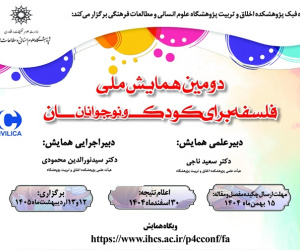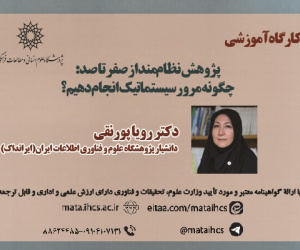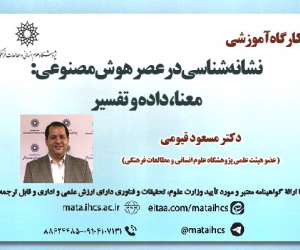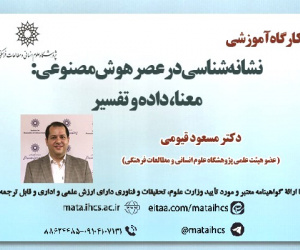واکاوی اضطراب مرگ در روایت های گیل گمش و هملت براساس نظریه ا. د. یالوم
آرشیو
چکیده
یکی از رویکردهای مهم در مطالعات تطبیقی، بررسی مقولات محوری در ادبیات با رویکرد روان شناسی است که با روانکاوی فروید رسمیت پیدا کرد و بعدها به بررسی موضوعات مختلف به تکامل رسید. یکی از این موضوعات می تواند مقوله مرگ و اضطراب حاصل از آن باشد که سوژه ای جذاب در نظرگاه روان شناسان است و در این میان، اروین یالوم با رویکرد روان درمانی پویه نگر اگزیستانسیال به معضلاتی مانند مرگ و اضطراب ناشی از آن و عواملی مانند تنهایی، آزادی و پوچی در این حوزه پرداخته است. لذا پژوهش پیش رو با رویکرد توصیفی –تحلیلی بر آن است تا مساله مرگ در روایت های گیل گمش و هملت را با عطف به نظریه وجودی یالوم، بپردازد. نتایج این پژوهش حکم می کند مهم ترین عامل اضطراب از مرگ در هر دو روایت، در قطع ارتباط با گذشته و مساله فقدان متمرکز است، فقدان پشتوانه، جایگاه، عشق و آرزوهای ناکام. از سویی دیگر، در هر دو روایت، غلبه بر آن ازطریق آگاهی، مسئولیت پذیری، ابداع معنا و... امکان پذیر است. گیل گمش و هملت نیز در مواجه با تجربه مرگ دغدغه بازیابی زندگی گذشته را دارند و با رویکرد دفاعی خود در زمان حال در تلاش ساختن معنای آینده هستند و از آنجا که در روایت گیلگمش، مساله تحول و دگردیسی در روند زیستی وجود دارد، نوع مواجه با مرگ نیز در میانه داستان متحول شده و از امر ضد اخلاق به امر اخلاقی متمایل می شود اما در هملت، این روند، به واسطه عدم صیرورت در شخصیت روایت، در قالب استیلا بر دیگری در تمامی روایت جاری است.Analysis of Death Anxiety in the Narratives of Gilgamesh and Hamlet Based on A. D. Yalom's Theory
One of the important topics in literature and psychology is the category of death and anxiety resulting from the fact that two important literary works in this field, the epic of Gilgamesh and the play of Hamlet, are from two different time periods. Also, with the emergence of psychoanalysis and the theory of the unconscious by Freud in the 20th century, it prompted many active psychologists, including Ervin Yalom, to approach problems such as death and the resulting anxiety and factors with an existential-based psychotherapy approach. Like loneliness, freedom and emptiness. The most important factor of anxiety about death in both narratives is the disconnection with the past and the issue of loss, the lack of support, status, love and failed desires. On the other hand, in both narratives, overcoming it is possible through awareness, responsibility, invention of meaning, etc. Gilgamesh and Hamlet are also concerned with recovering the past life when faced with the experience of death and with their defensive approach in the present, they are trying to create the meaning of the future. Since in Gilgamesh's narrative, there is the issue of transformation and metamorphosis in the biological process, the way of facing death also changes in the middle of the story and tends from anti-moral to moral. However, in Hamlet, this process, due to the lack of becoming in the character of the narrative, is ongoing in the form of domination over the other throughout the narrative.








